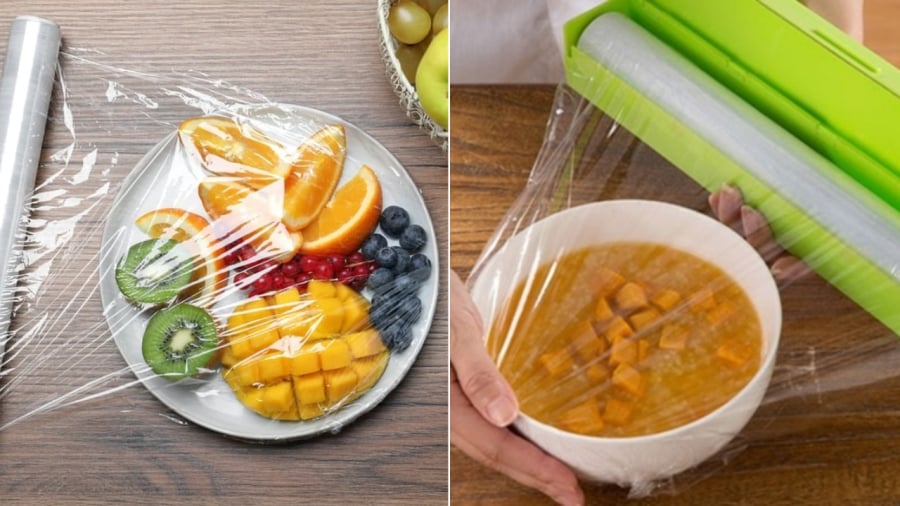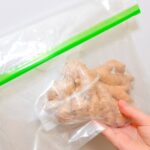Plastic wrap is a popular product used by many families to store food and prevent food odors from mixing. However, using plastic wrap incorrectly can lead to toxic exposure and harm your health.
Using Plastic Wrap on Hot Food
It is a common bad habit to use plastic wrap to package hot food. At temperatures above 80 degrees Celsius, the plasticizers and chlorine in the plastic wrap release toxic gases, especially with the commonly available and inexpensive PVC plastic wrap.
Prolonged exposure to these gases can damage your health, including harm to your liver and nervous system. To stay safe, let your food cool down to below 50 degrees Celsius before using plastic wrap. Additionally, avoid using plastic wrap when reheating food. Instead, use containers with heat-resistant lids, especially when using the microwave.
Using Plastic Wrap with Acidic Foods
Avoid using plastic wrap with acidic foods like vinegar, lemon juice, or pickled vegetables. The acid in these foods can corrode the plastic, releasing harmful substances that seep into the food. Consuming these chemicals can lead to health issues such as immune system disorders, endocrine disruption, and reproductive problems.
For acidic foods, opt for ceramic or glass containers with tight-fitting lids. Do not use PVC or PVDC plastic wraps with these types of foods, as they are highly susceptible to degradation when in contact with acids.

Using Plastic Wrap on Oily Foods
You might think that using plastic wrap on oily foods is harmless, but there’s a hidden danger. Oils and fats can dissolve certain chemicals in plastic, including plasticizers. These toxic chemicals, when ingested, can negatively affect your health. So, while it may be convenient, using plastic wrap on oily foods is not a healthy choice. If you have this habit, it’s best to break it now.
Reusing Plastic Wrap
Some people, in an effort to be economical, reuse plastic wrap. However, this is not a good practice. Plastic wrap is designed for single-use only. Reusing it can lead to tears and deformation, providing an easy entry point for bacteria and mold. Additionally, the plastic may start to degrade, releasing toxic plasticizers or microplastics that can contaminate your food, especially if it has been used with oily, hot, or acidic foods.
For your health and safety, it’s best not to reuse plastic wrap. The information provided here highlights the potential health risks associated with four common misuse of plastic wrap. Review your plastic wrap usage and make necessary adjustments to protect your well-being.
Keep Lettuce Fresh for a Week with This Storage Hack
Introducing the ultimate guide to keeping your lettuce fresh and crisp! Forget the fridge – with this simple trick, your lettuce will stay as good as new. Discover the secret to locking in that just-bought freshness and transform the way you store your greens. It’s time to elevate your salad game and impress with restaurant-worthy crispness!
Keep Your Meat Fresh for Longer: The One Extra Step You Need to Take Before Refrigerating
Preserving meat for extended periods has always been a challenge, and most people tend to resort to freezing or refrigerating it to maintain freshness. However, this common practice can lead to bacterial contamination, affecting both health and the longevity of the meat. The following guide will reveal innovative ways to keep your meat fresh and edible for much longer, ensuring a healthy and tasty experience.





































